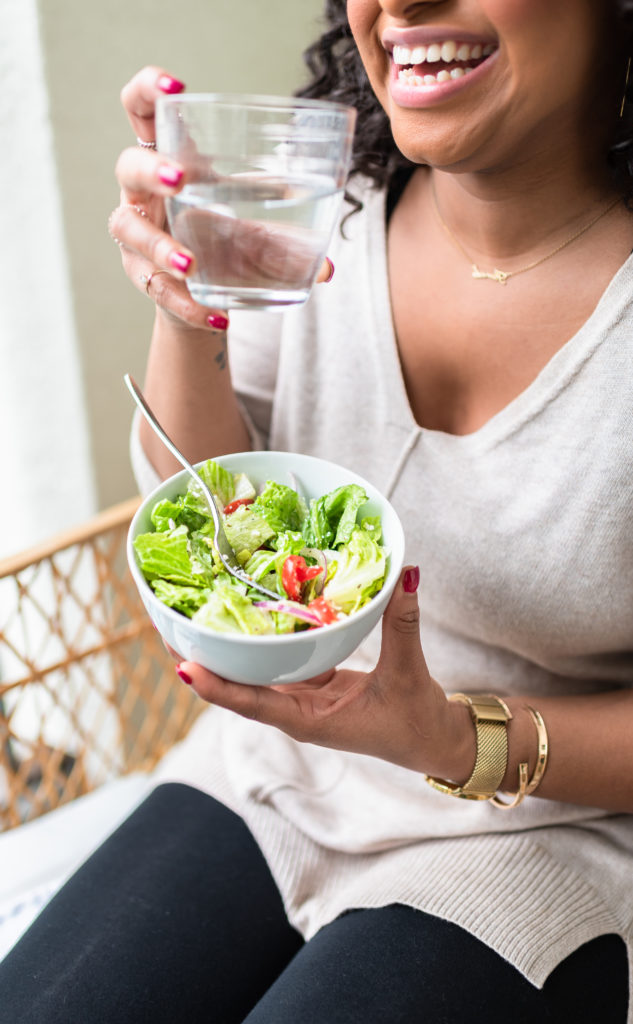
What Causes Emotional Overeating Disorder?
Whatever you learn today remember to take it one day at a time. Rome wasn’t built in a day.
Emotional overeating disorders can be difficult and devastating for those who suffer from them. What makes this happen? Why is it that some people, knowingly or unknowingly, turn to food for comfort? Here are some thoughts and ideas on those questions.
Emotional overeating disorder is a general term that refers to any of various eating habits where genuine hunger is not the motivational factor. It is more common among women than men, but men are not immune – especially young men in their teens and twenties. Those who suffer from this disorder associate food with emotional comfort, and will turn to eating to escape negative feelings.
Past Trauma
For some with emotional overeating disorder, the problem stems from past traumatic events. Someone who suffered sexual abuse, for example, or some other kind of sexual trauma may overeat in response to feelings of anxiety and confusion. The result is a fatter body, which some sources suggest may cause the sufferer to feel “protected” from being attractive to the opposite sex. Subconsciously or consciously, the sufferer wants to be unattractive. Other examples of past trauma or unmet needs may cause a person to turn to emotional overeating.
Poor Self-Image
People who suffer from low self-esteem and a negative self-image may seek escape by overeating. In a way, emotional overeating is a physical expression of what the sufferer feels inside, and the resulting weight projects the same image of self-disrespect.
Self-Medication
Like alcoholics, those who struggle with emotional overeating may be unconsciously using food as a drug. Eating numbs or dulls the emotions that might be too hard to deal with otherwise.
Depression
Studies indicate a strong correlation between depression and emotional overeating. Ironically, sometimes as depression grows worse a sufferer loses weight; weight loss means the sufferer is not eating as much, and therefore not engaging in his or her coping mechanism.
Stress
Prolonged, unrelieved stress can have a profound effect on the body. Stress stimulates the body to produce, among other chemicals, the hormone cortisol. Cortisol apparently has a hunger-stimulating effect, and as the stressful emotions increase along with the cortisol, a cycle of emotional eating can play out.
Individual Triggers
There are triggers or causes of emotional overeating that are not necessarily in the categories above. Some examples might be:
* Boredom
* Oral need or a need to satisfy your mouth’s need to do something
* Social pressure or embarrassment at eating in public, resulting in overeating in private
* Financial stress
* Relationship difficulties
If this sounds like you, here’s some tips to try:

- Find other ways to feed your feelings
- If you’re depressed or lonely,call someone who you’re close to, go to a pet store and pet some animals, or the zoo. Asapeak to a therapist.

- If you’re anxious,expend your nervous energy by dancing to your favorite song, squeezing a stress ball, or taking a brisk walk.
- If you’re exhausted,treat yourself with a hot cup of tea, take a bath, light some scented candles, or wrap yourself in a warm blanket.
- If you’re bored,read a good book, watch a comedy show, explore the outdoors, or turn to an activity you enjoy.
- Pause when cravings hit and check in with yourself
Most emotional eaters can feel powerless. Ehen the urge hits, you know you’re not hungry, but you feel powerless to resist, after all you’ve tried and fail countless times. I know how this feels, especially since my diet needs to e different when dealing with cancer, but every now and then I get that irresistible urge for sugar or dairy, that I fall to at times and then I feel horrible after. But the truth is, we have more power over our cravings than we think.
- Pt off your cravings f or 5 minutes. Tell that cupcake or whatever it is you’re craving. Give me 5 minutes. During that time ask yourself, what’s going on with me right now? How am I feeling? Even if you go and up eating that food, at least you’ll know why and better be able to handle it net time when you know what your triggers are.
- Learn to accept your feelings, even the bad ones. Do not belittle yourself for feeling that you’re feeling and wore don’t berate yourself for giving in. Speak kindly to yourself.
- Practice mindful eating-
Take time to sit down and enjoy your meal. Savor every bite. Avoid eating while doing other things such as watching tv, or eat while doing laundry and household chores where you’re taking a few bites then running to empty the washer etc. Being distract can make you eat less and then you tend to snack all day or over eating because you’re not paying attention.
Finally, support yourself with healthy habits.
- Connect with others
- Get enough sleep

- Exercise

- Make time for relaxation
- Stock up on whole food snacks such as fruits, so even if you’re eating emotionally or craving, you’ll be eating healthy.

